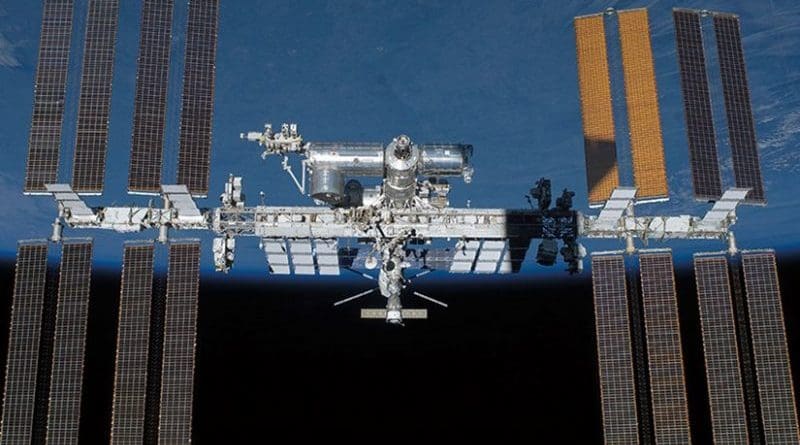Why The Next War Could Be In Space – OpEd
By Arab News
By Khaled Abou Zahr*
There is a lot in our daily lives that depends on space, the most obvious being GPS. All the location-based applications that we use daily without thinking — Uber, Snap, Talabat, Google Maps, Amazon, etc. — are linked to GPS, so space has unlocked a $100 billion economy. Conversely, any disruption to this service can cause massive losses, disrupting supply chains and economies.
In the past decade there has been a transformation in the business of space. For many years, beyond communications satellites that enabled us to watch our favorite shows or the World Cup final live, most space business had two customers: Defense ministries and space agencies — NASA for the US, the European Space Agency and national agencies for Europe and the rest of the world. This has been transformed through commercial activity between NASA and SpaceX, which was founded by Elon Musk. NASA has started allocating business services to SpaceX in an effort to reduce costs. That was a transformational step for the space economy, as the cost of sending anything into space dropped from $18,000 a kilo to below $4,000.
This has opened the door to commoditizing and commercializing space. New business opportunities range from factories to space tourism. There are now thousands of companies working in the space sector and thousands of satellites orbiting Earth (creating space debris, but that is another topic). With more assets and more economic interests in space, it has also become an area of potential confrontation. It is different from the competition to reach space that existed during the Cold War between the US and the USSR. This time it is about finding space in space, and protecting it.
This has led to a growing focus on the development of space defense capacity in parallel with the privatization of the sector coming mainly from the US. Defense ministries worldwide have started taking seriously the risks of disruption to communication satellites and other services or assets in space. It is also in line with the renewed objective of sending humans back to the moon and creating a true sustainable infrastructure that can support life. By 2025, the US-led but multinational Artemis Program aims to launch the first crewed lunar flight since the final Apollo moon mission in 1972 — but this time in conjunction with private companies and initiatives that all need protection and the rule of law.
There are already laws that regulate space activity and participants are encourage to respect them, but they cannot be enforced. The war in Ukraine is the first that has extended to space, since it exposed how much positive collaboration existed there. The International Space Station shows the power of global cooperation and its benefits for humanity through discoveries and unlocking new economic opportunities. The collaboration on launches and other services has also shown how interconnected the space sector is. It is now a potential conflict zone that will transform space exploration.
Last week the UK, US and EU accused Russia of being behind a cyberattack targeting a satellite communications network used in Ukraine just before the start of the war. Businesses and individuals using routers made by Viasat, an American business that provides broadband-speed satellite internet connections, were knocked offline. In November last year, Russia tested an anti-satellite weapon and intentionally destroyed one of its own defunct satellites. The impact left behind hundreds of thousands of debris objects that now pose a risk to the ISS crew and other satellites in low-Earth orbit. Other countries have conducted similar tests in a clear message of the capacity to disrupt. All sides have been exchanging threats, and the head of the Russian space agency had previously threatened to allow the ISS to descend into a decontrolled orbit and fall on the US or Europe. All this has led to a pause in international cooperation.
On the other side, the private sector has taken the lead in space. Elon Musk’s company Starlink began sending Ukraine shipments of satellite kits shortly after the war began. Ukrainians can use the Starlink kits to connect directly to SpaceX’s network in orbit, with the company having launched about 2,000 satellites to date. This equipment has also been used to adapt on the battlefield. SpaceX is also taking away income from Russia; the world relied on Moscow to send astronauts to the ISS at a cost of $70 million each, which SpaceX can now achieve for $50 million.
Private companies have also taken center stage in Ukraine’s information war. Earth observation companies have been able to deliver high-level imagery and data analysis that was previously restricted to the military. This has been a game changer. Companies such as Planet Lab, whose images we see every day in the news,have been supporting Ukrainian efforts all along. In the future, direct phone-to-satellite will bring even more change.
It is now clear that space has become an area of economic opportunity and wealth creation, and thus also an area of potential confrontation, some of it military. For many years, even during the Cold War, space was immune from geopolitics — but we have now entered the epoch of astropolitics.
- Khaled Abou Zahr is CEO of Eurabia, a media and tech company. He is also the editor of Al-Watan Al-Arabi.

